We’ve reached the end of BSM’s ‘Day Spent With‘ series. I hope you’ve enjoyed reading these pieces as much as we’ve enjoyed creating them for you. I want to thank all of the brands, companies, and professionals who made time for Derek Futterman during the past two months. None of these projects work without help from a lot of quality people.
Our goal from the start of this series was to shine a light on what a day entails inside each workplace. Whether folks work in radio, digital, television, voiceover/imaging, media buying or management, consistent success can not be achieved if all departments aren’t working in sync. Fortunately, we’ve got a lot of good ones continuing to raise the bar across the sports media industry.
To close things out, we sent Derek to South Beach to spend a full day with The Dan Le Batard Show with Stugotz. My thanks to Dan, and the entire crew for making time for us. I also want to thank Bimal Kapadia for putting the wheels in motion. We don’t travel a lot for projects, but when this idea came up, I thought it’d be a great way to put a bow on an awesome series. I’m sure as you read the piece, you’ll agree that it offers a great peek into life on the pirate ship. I just hope Derek didn’t bring home an eye patch or lose a hand in the process.
Jason Barrett
______________________________________________________________________________________________________
A loud bell rings two minutes before the top of the hour, signifying to all those within the facilities that the show is about to begin. This tone, albeit fleeting in its duration, has a resonance that rings true throughout the entirety of The Dan Le Batard Show with Stugotz, but it is hardly the catalyst for the natural energy and congeniality exhibited inside the studio walls. There is a calculated verve and mental calmness that permeates the space combined with an inherent awareness of the expectations and commitment to its audience.
Although there are elements of improvisation and joviality within the three-and-a-half hour show, hosts and contributors do not simply enter the studio without a plan. Personnel arrive at the Meadowlark Media studios in Miami in two waves with a cognizance of news across a variety of topics. In an office space with the Port of Miami and Kaseya Center visible in the distance, the cast brainstorms potential talking points and informs those involved in audio and video production of any content they might need. Of course, part of the job is also remaining prepared for a deviation off script depending on the discussion percolating or breaking news off which to react.
Co-hosts Dan Le Batard and Jon “Stugotz” Weiner have been working together for nearly two decades, first at 790 The Ticket in Miami. The local version of the show quickly flourished through its blend of sports and other worldly discussion. There have been several different permutations over the years. Consistent through it all is knowing and accepting their roles, and embracing the sublime to the ridiculous, while enjoying content selection freedom.
“I would say that we’re following our curiosities, so I want the show to have range, but I’m going to say [it is] a sports show in costume; a sports show in disguise,” Le Batard said. “I want it to be about other things and it also has sports, but I don’t want it to be limited as a sports show.”





Le Batard and his team do not hesitate to address divisive issues head on, adopting a direct approach rather than espousing their opinions in a indirect manner. There is both deliberate and indirect self-effacing comedy within the show, which begins with a “Local Hour” broadcast streamed live on YouTube weekday mornings at 9am ET.
Consumers wait for the countdown to commence to showtime, which is set to a pulsating theme song with its wide array of cast members engaging in different activities around the facility. Conversely, Weiner is stuck in Miami traffic trying to arrive at the studio on time and dashes through the door to arrive just on time. Abstaining from the pre-show meeting, however, is usually part of the plan in how he executes his infamous “Stugotz” character that has been cultivated for nearly two decades.
“In terms of what’s going to be thrown at me, I really have no idea, and there are many, many times I don’t know what my response is going to be to some of the topics of the day until it’s actually asked to me by Dan,” Weiner said. “I’d rather just not know where I’m going to go and just go with my gut.”
On this particular version of the program, Weiner is not in the studio and in the midst of taking vacation. Miami Herald sports columnist Greg Cote is live for his weekly appearance on the program in a tradition that has become a favorite among colleagues and listeners. Le Batard opens on a somber note, discussing the sudden collapse of the Francis Scott Key Bridge in Baltimore, disclosing that the program was not going to show the video of the incident.
Cote believed that the video should be shown one time just as it is any calamity, prompting Le Batard to explain his opinion on how the footage will likely be promulgated by the internet. The program then moves on to discuss Sean ‘Diddy’ Combs, who had his properties raided by authorities as part of a federal investigation pertaining to sexual assault, sex trafficking, firearms and illegal narcotics.
Over the years, industry professionals have frequently associated the word ‘pontificate’ with Le Batard, referring to how he expresses himself and often spans beyond sports. During his time at ESPN, the program had to clear certain creative elements or segment ideas with upper management. Many people began to foresee a split between Le Batard and ESPN approaching, and that resolution was eventually reached. Le Batard thinks critically and objectively about different topics, outlining his opinions about various matters on the air, and he always desired the ability to possess more creative control.
“Our show is just meant as an audio experience in a family-like environment, creating laughter and weirdness and pretending like it doesn’t know a lot of people are watching,” Le Batard said. “That needs to be protected, and we’ve thrown a lot of change at it.”

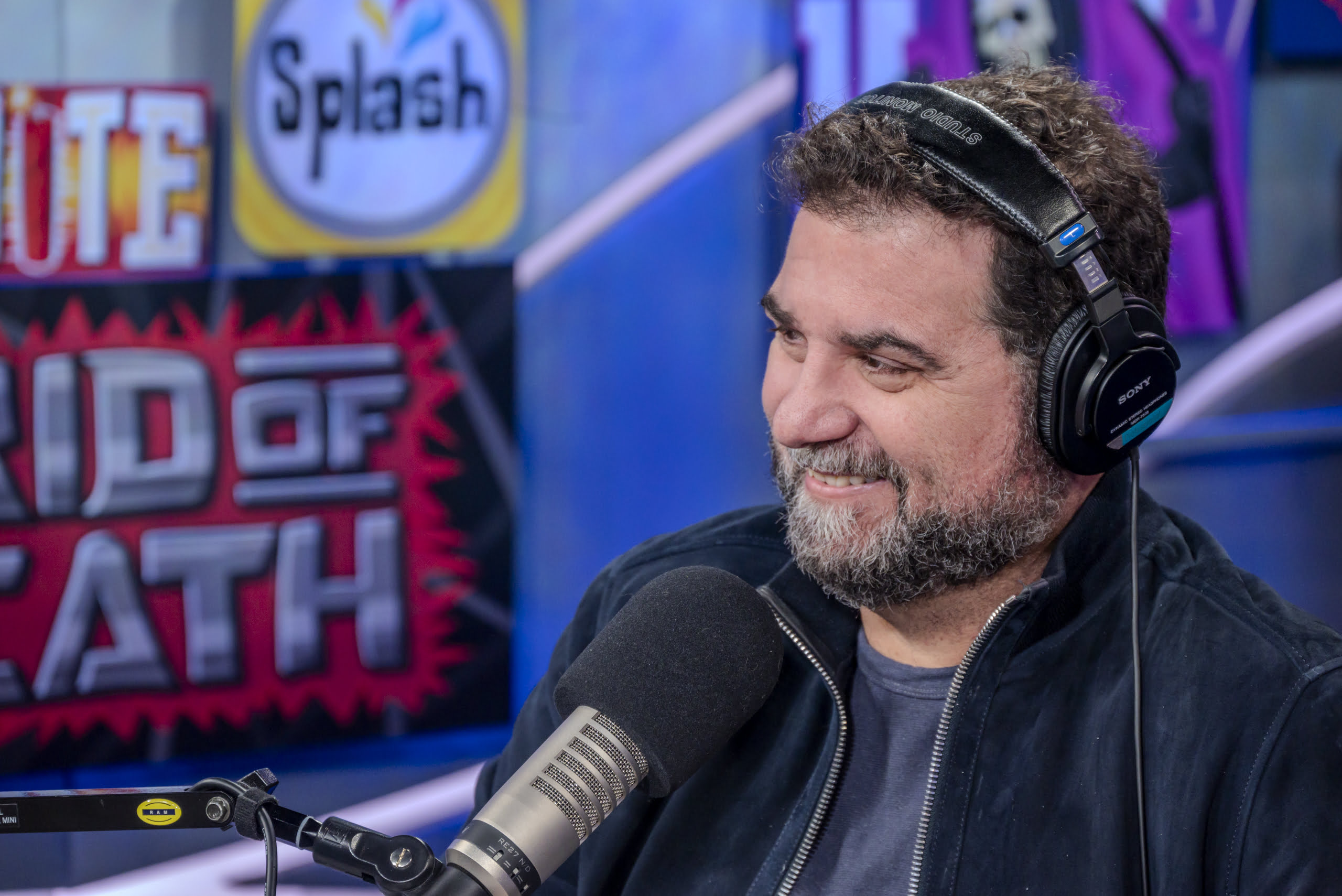
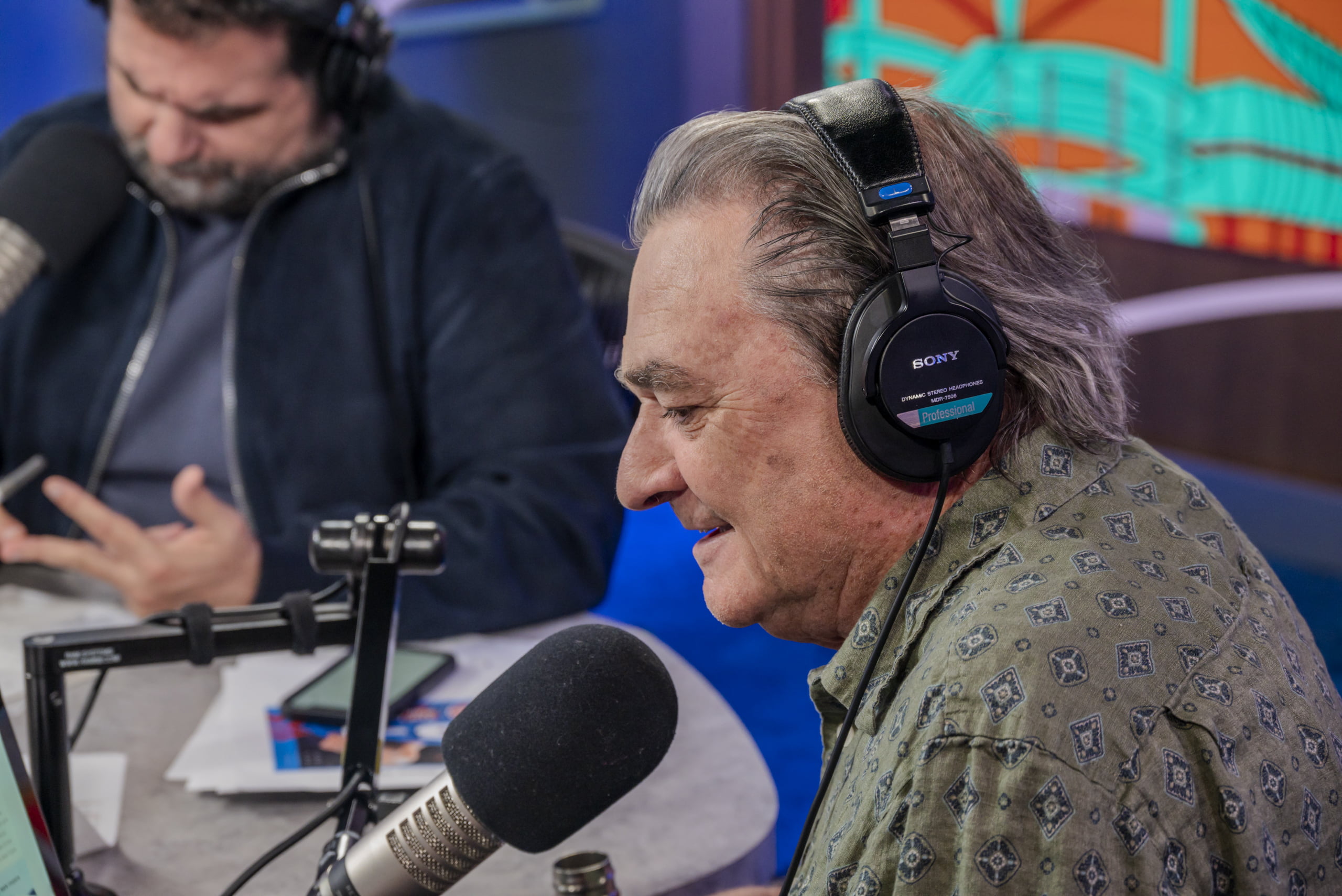
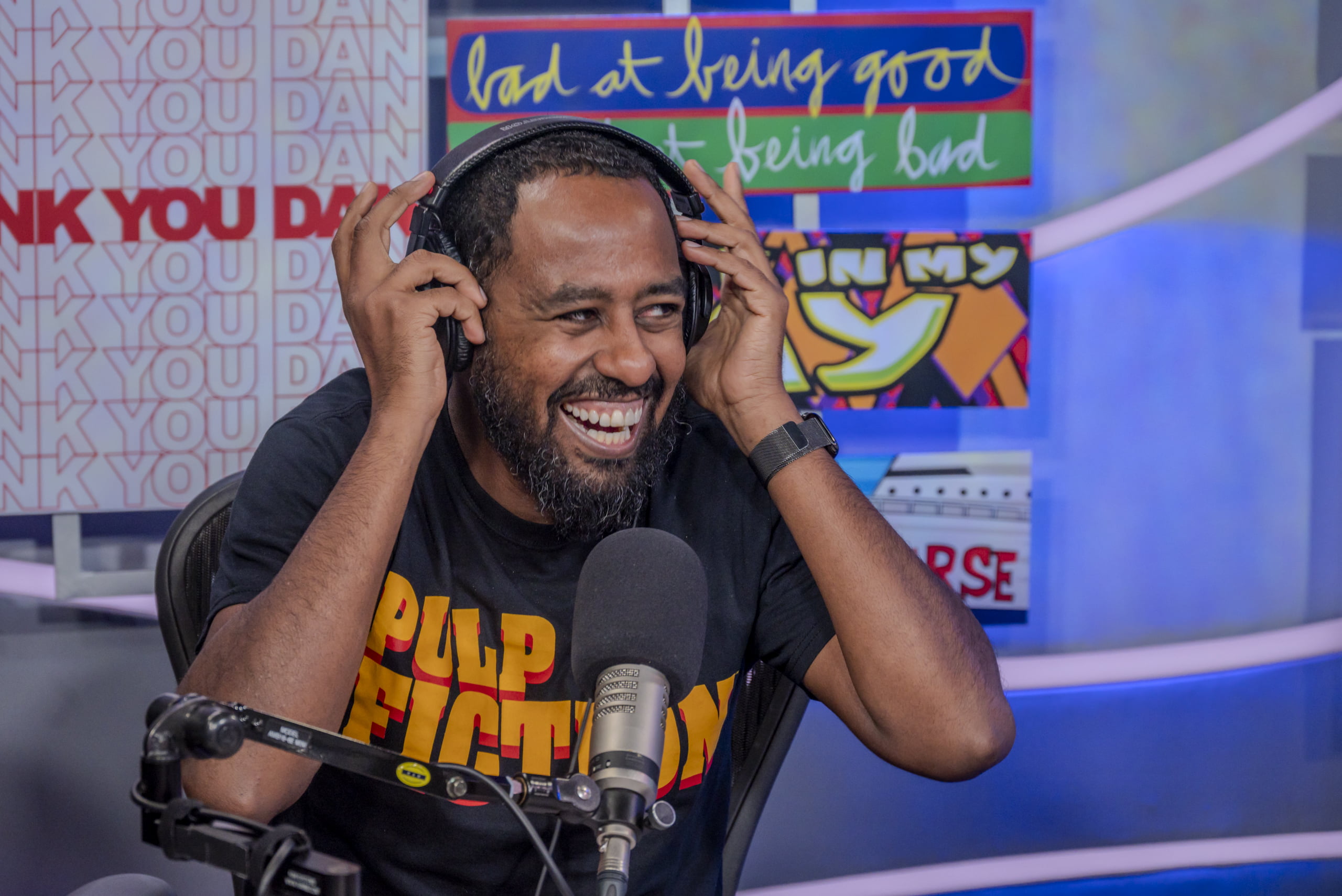
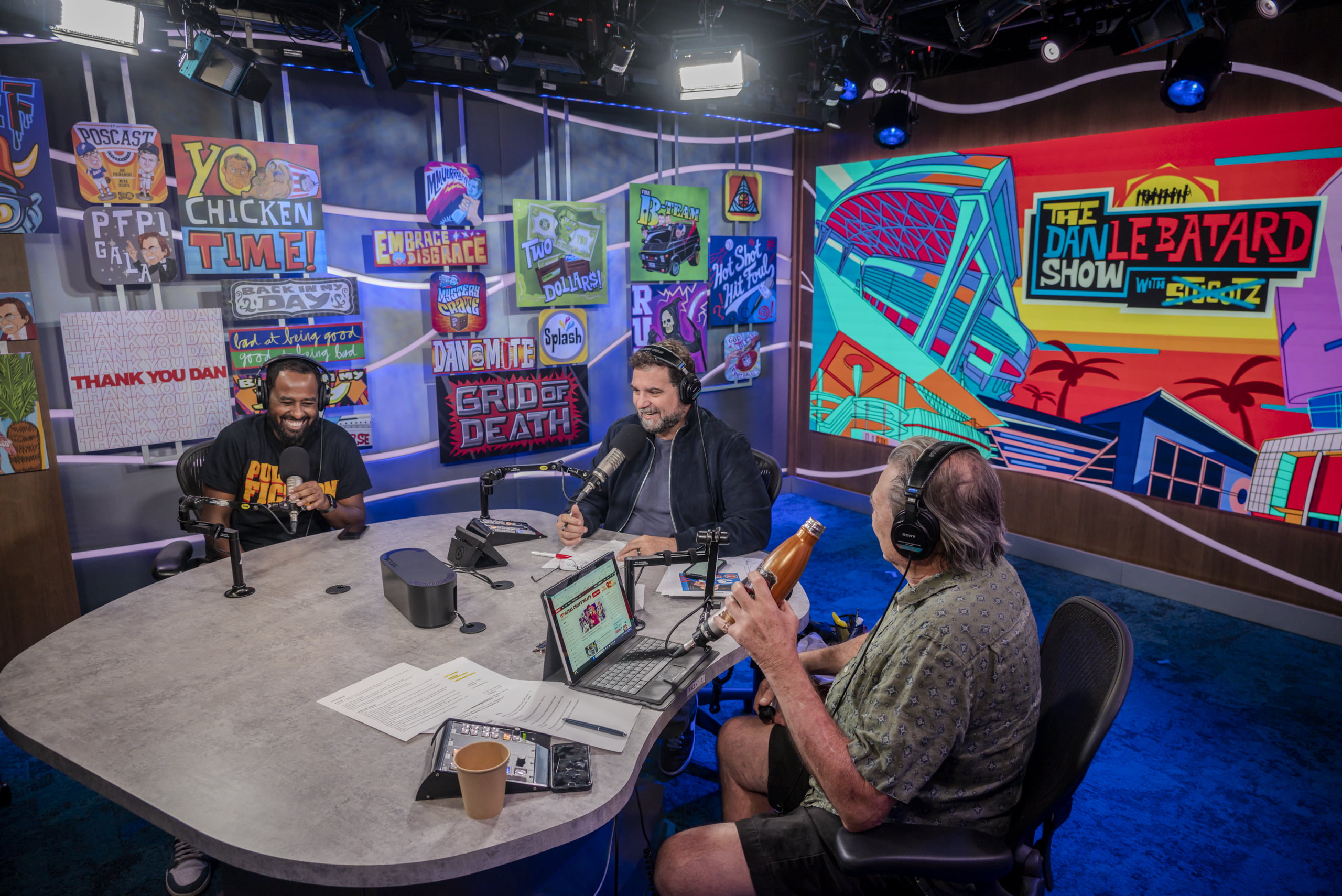
In the last several years alone, the program has enacted alterations in its process pertaining to the studio, cast members, clock, visual elements and start time. At the same time, Le Batard’s brother, David, was battling brain cancer and later passed away, but he did not want to give his audience the vulnerability associated with the hardship. Le Batard considers the creative process to be sacred and values the intimacy of their communication medium.
“I allow our most passionate fans to have strong opinions that make me reconsider mine,” Le Batard said. “I like a community that has sparks in it even if we get accused of being an echo chamber, but I would say that over the last couple of years, I have found fewer and fewer spaces where the criticism is constructive enough to be heard over all of the poisonous devices [and] rhetoric that is now internet spaces that are covered in acid and fire.”
When radio show producer Chris Cote was included in layoffs at ESPN in November 2020 without Le Batard’s knowledge, Le Batard immediately re-hired him as his assistant and offered to pay his salary. For Cote, the act was unsurprising because of Le Batard’s loyalty to his staff members and something he believed precipitated his exit from ESPN.
“That was an interesting time,” Cote recalled. “I would say I’ve made the joke on the air before that people like to blame me and say I’m the reason we left ESPN. I think what happened with me was the final straw that led to the divorce.”
Cote knew Le Batard from the time he was young since he worked with his father, Greg, at the Miami Herald. During those visits though, he did not realize Le Batard could one day be his boss. He now views it as funny that things ended up unfolding in this manner. Le Batard hosted this edition of the show with Greg Cote, someone he originally wanted as his partner on the air.
“If he and I had chosen to do the show with 20 years of reps, it would have felt like Larry David and the late Richard Lewis,” Le Batard said. “It would have been a chemistry because our friendship is real. It’s not borne of television; it’s not borne of broadcasting.”
“My dad brings that special sauce that Stugotz brings to the show where we’re talking about sports and then he says something, and the next thing we know, we’re spending 10 minutes just making fun of something he said,” Cote added. “My dad is like the gift that never stops giving. He’s just a gold mine for random stuff that has nothing to do with the conversation we’re trying to have, and he’s a content factory.”
The character of ‘Stugotz’ is not as much acting as it is an exaggerated version of who Weiner genuinely is in his life. On the show, he tries to represent how most people consume sports, affirming that Le Batard does it in a different manner. Part of his inspiration came from Christopher “Mad Dog” Russo, longtime radio host at WFAN and SiriusXM. Weiner believes that things clicked when he started to mock him rather than try and successfully facsimile his approach.
Part of the allure and mystique around ‘Stugotz’ is in his absences and fans not knowing when he will be on the show. As time has progressed, the character has appeared on other programs such as the God Bless Football and STUpodity podcasts, but he has long been synonymous as Le Batard’s sidekick who is relatable and intriguing. When he is missing from the program, the show rebrands its graphics to read “The Dan Le Batard Show without Stugotz” and plays off the aura of the personality.
“I wish it was my idea, I’m upset that it wasn’t my idea and this is the first I’m finding out about it,” Weiner said. “You’re telling me they do this every time I’m not there? Well two things – it shows, (a), how much attention I’m paying to the show when I’m not there, which is slightly less than I am when I am there, and No. 2 is my reaction to it. Me laughing is what makes our show our show. I’m pissed that I didn’t come up with the idea; I am proud of them for coming up with that idea and executing it. It’s laugh-out-loud funny.”
Le Batard and Stugotz broadcast their show facing a pane of transparent glass, behind which lies an addendum to the studio space. Chris Cote is part of the group within the “Shipping Container,” a room containing different producers and contributors who operate audio equipment, coordinate guest appearances and frequently contribute to the conversation. Both areas are adorned with artwork and sports memorabilia from the city of Miami. Mike Ryan (Ruiz) has been part of this labyrinth for several years, especially when he served as the show’s executive producer. In the present moment, this role is filled by several different personnel who rotate depending on schedule and show needs.
“The best shows are when there’s a lot of creative energy bouncing off one another [and] a lot of workshopping because this is basically a writers’ room where we trade off ideas and we try to figure out, ‘Who’s the best vessel for this joke?,’” Ryan said. “Sometimes we feed it to one of the talents; sometimes someone else says it here.”
Joining Ryan in the Shipping Container during this show were Billy Gil, JuJu Gotti and Anthony Calatayud. The live-streamed “Local Hour” is packed with topics and news the show discussed beforehand. Every hour of the program averages approximately 40 minutes on the podcast side and contains two breaks, each with a two-minute duration. Once the hour ends, Le Batard and the staff usually take a 15-minute intermission before resuming the show.
“We have a show that is kind of imperceptible when Dan isn’t driving a show,” Ryan said. “It’s this amorphous ensemble, and the trick is to not let anybody really know that there is a perceived leader – that it’s all just a free-flowing conversation – and I think that that’s a delicate balance that comes with time and developing chemistry.”
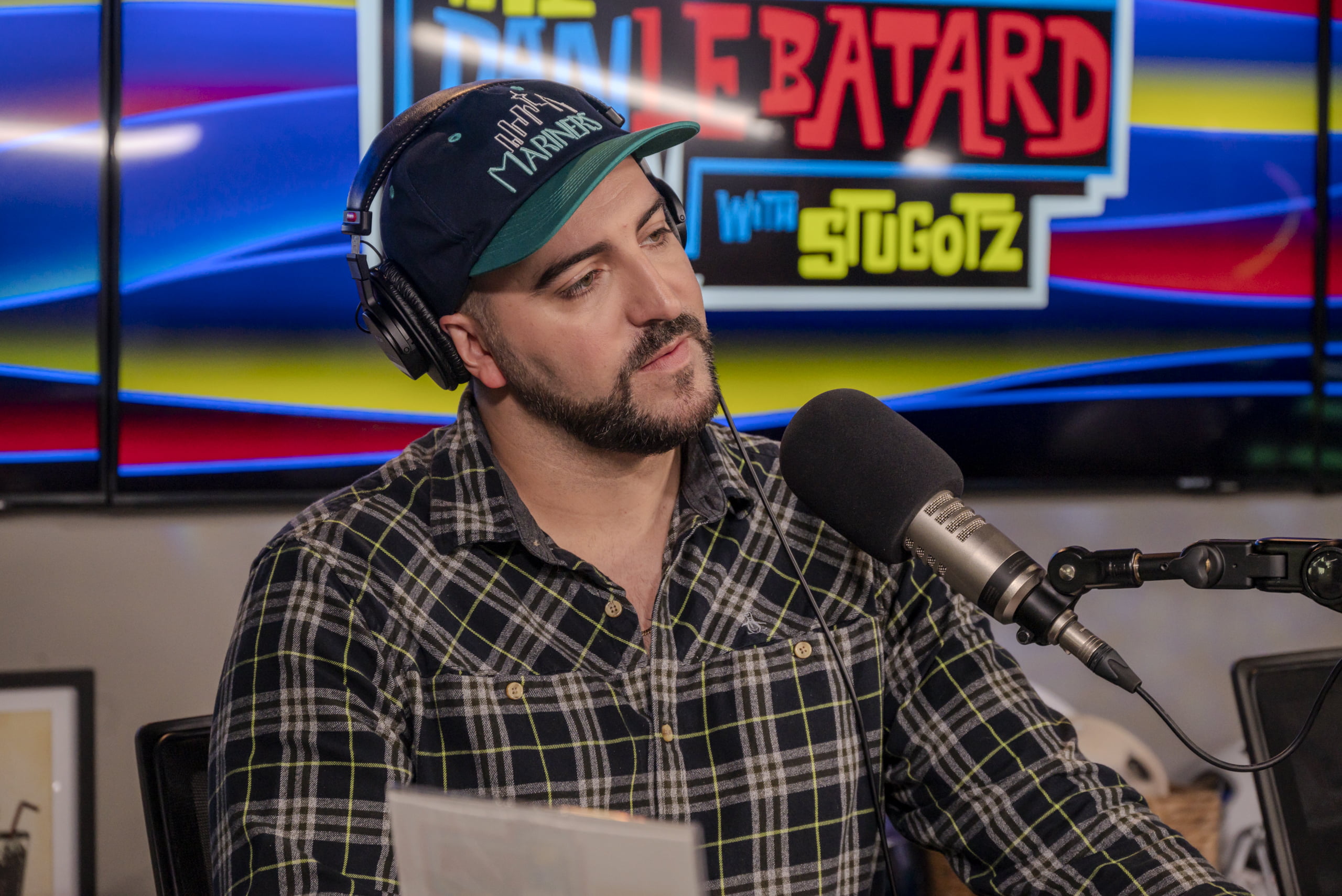
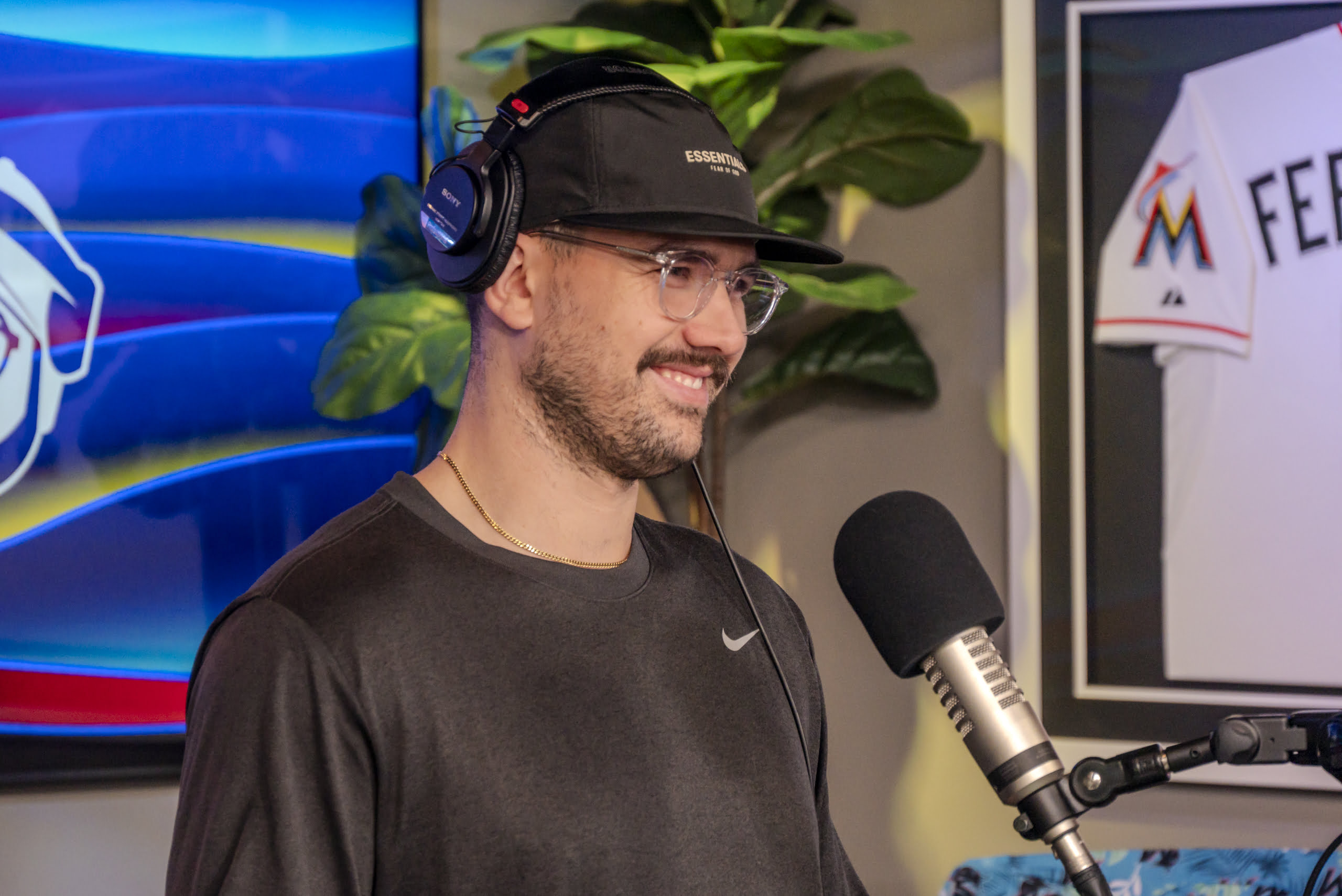
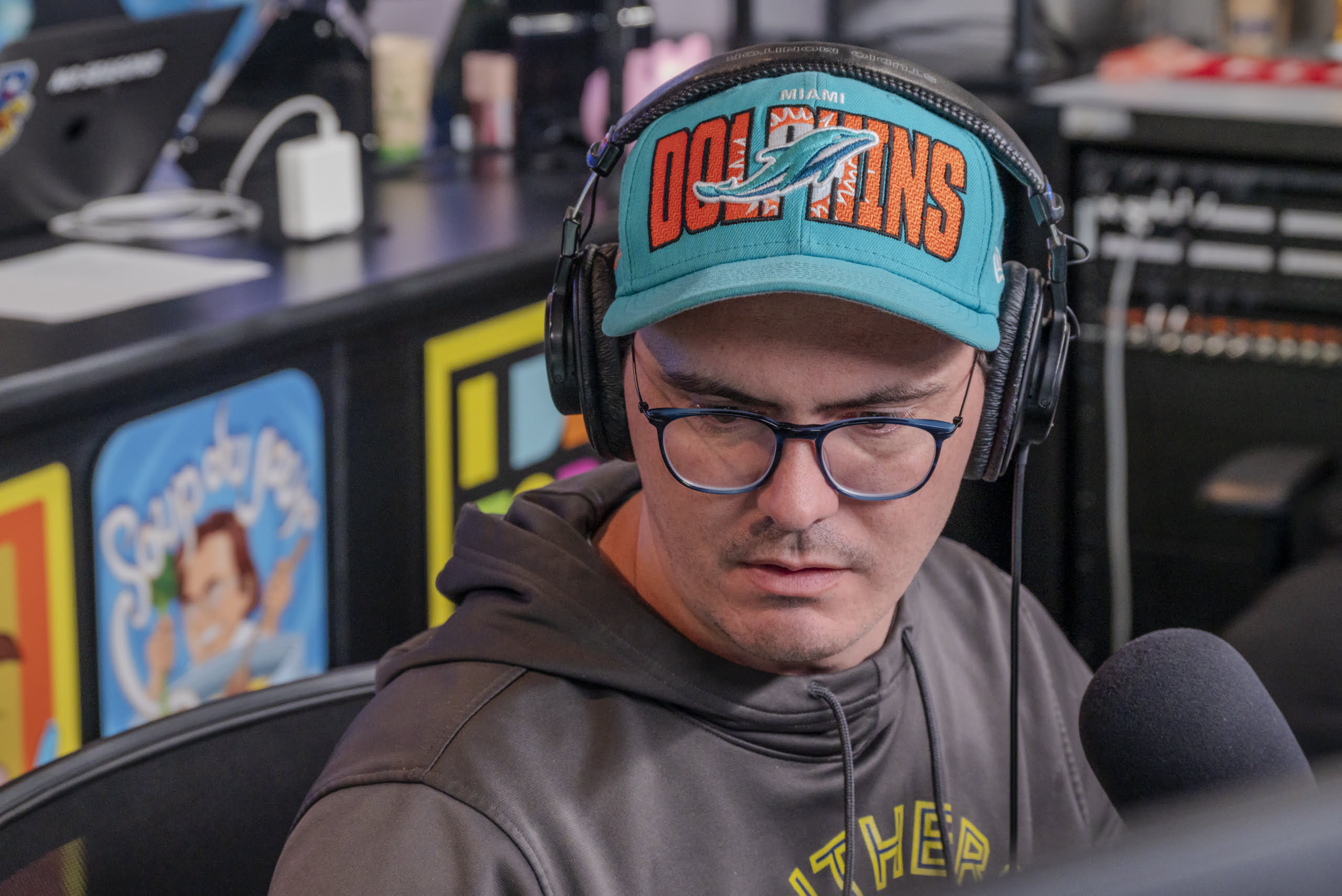

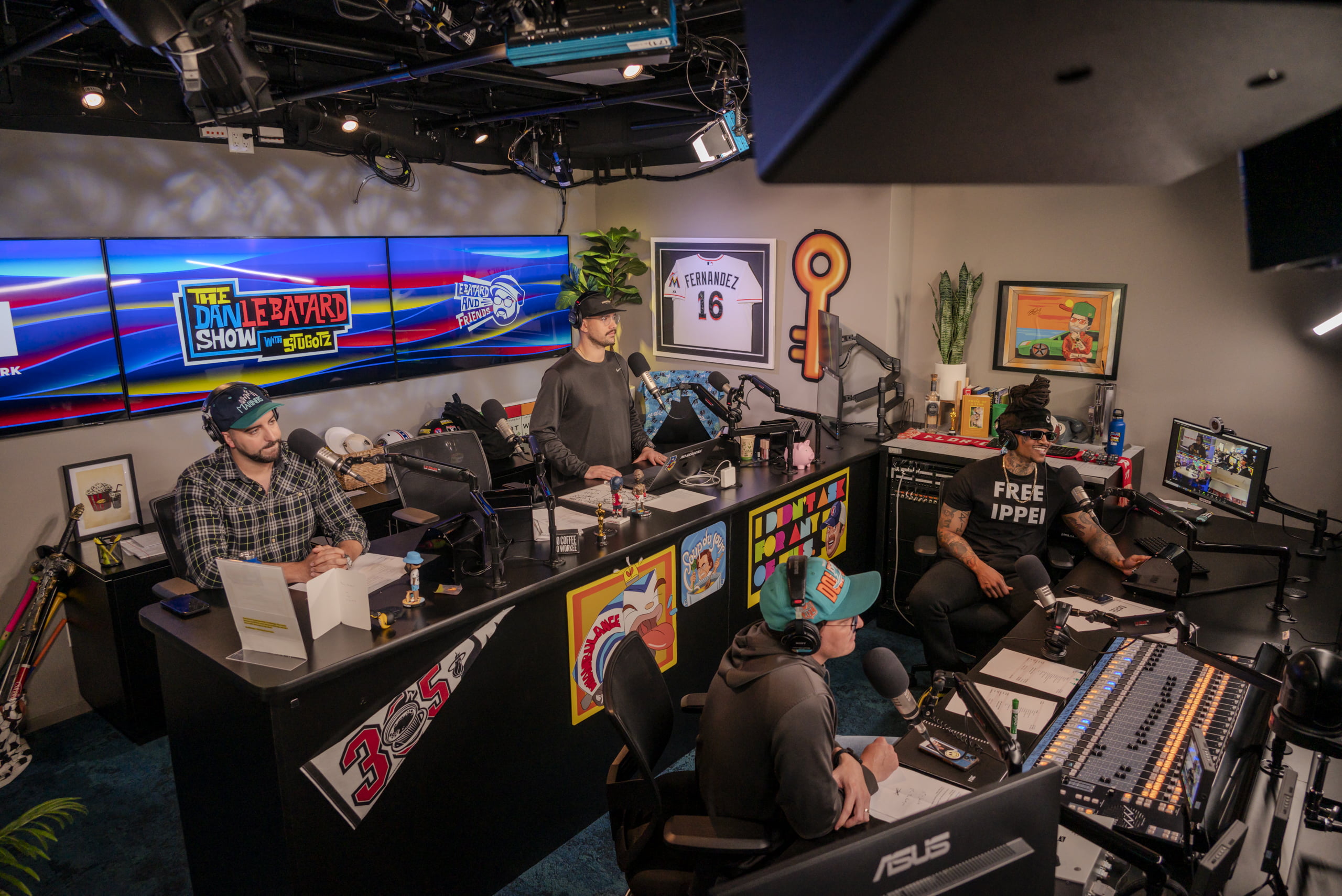
Gil was responsible for executive producing this edition of the show, running the audio board and coordinating with the television producers. When Le Batard mentioned Alan Thicke, Gil sifted through audio archives to track down something related to the topic. Additionally, he was taking notes to denote different titles and descriptions for segments geared to be released in podcast form.
“A lot of times, we’re trying to come up with jokes for Stugotz,” Gil said. “There’ll be days where naturally just bits will form, so then we’re getting sound for the bits; having voices done for the bits; kind of putting that together so there’s opens [and] closes. If a top-five or something comes up naturally, figuring out the top five. There’s a lot of in-show production and things going on that if you’re listening, we’ve gotten away with people being like, ‘Oh wow, that’s a lot of prep,’ and it’s like, ‘It happened on the fly.’”
Le Batard and former ESPN president John Skipper founded Meadowlark Media in 2021, a content studio with a wide array of programming and partnerships spanning sports and entertainment. The move was liberating to many show members and has been built out through The Dan Le Batard Show with Stugotz and other programs available in both audio and video formats. Le Batard’s show in particular has significantly expanded the staff situated within its Shipping Container with young and dynamic talent.
JuJu Gotti, for example, landed the job as the show’s social media manager through a friendship he forged with Ryan. Gotti gained attention when he revealed to Mike Golic and Trey Wingo that he had a tattoo of Greg Cote and was later featured on the program. Even though he does not live in the area, Gotti travels to the city once every two weeks where he provides his opinions and monitors social media platforms. Later in the day, Gotti participates in several meetings with the Miami-based Meadowlark Media team and continues his other work.
“I look at it like it’s a blessing to wake up every day, so anything beyond that is triple exciting because the people who are in the Shipping Container with me [are] not necessarily bad people at all,” Gotti said. “I enjoy hanging with them and talking to them, so it feels wonderful.”
After working as a video producer for Sports Illustrated, Jessica Smetana joined Meadowlark Media in its early stages and is on the verge of her third year with the company. Growing up as a devoted fan of ESPN and Le Batard’s program, she understands that there are diversified interests and opinions. Smetana does not hesitate to present her perspectives on different matters, such as the demise of Sports Illustrated amid uncertainty towards its future with a change in publishers.
“I don’t want to regret not saying what’s on my mind a month from now when I see a bunch of my friends out of jobs,” Smetana explained, “so I think it just comes from not wanting to hold anything back when some of those topics come up.”
Meadowlark Media and DraftKings agreed to a distribution deal in 2021 where The Dan Le Batard Show with Stugotz, along with programs across the “Le Batard & Friends Network” are disseminated to a variety of different outlets. Ninety minutes of Le Batard’s show airs live on DraftKings Network every day as part of a two-hour programming block, the final 30 minutes of which is a replay of selected material from earlier in the show.
Within the ensuing hours of the show, which includes interviews with journalists Jemele Hill and Tim Kurkjian, Le Batard poses interview questions to his guests surrounding current events and new projects. The show also welcomes Amin Elhassan to the studio, who occasionally fills in as a host while also growing his Oddball podcast.
Le Batard, Cote and Elhassan are in the main studio and speak with those in the “Shipping Container” through the glass. Weiner believes the wide array of voices and perspectives keeps the show young and relevant as he and Le Batard continue to grow older. In watching the show evolve over time, Le Batard evinces that the new cast members coerce the audience to face unpredictability and leads to the show deviating from doing things in the exact same ways as it had previously.
As the newest member of the program, Lucy Rohden splits her time between the Shipping Container and reporting around the country. She was recently in Iowa covering the first round of the NCAA Division I Women’s Basketball Tournament, including watching her alma mater Iowa Hawkeyes and star guard Caitlin Clark.
“I found that traveling and creating content on the road is what I enjoy doing most, and so if that means sacrificing time on the show to get to do that, that’s sort of worth it for me,” Rohden said. “But it’s still something I’m balancing and learning how to do, and it’s something that the show is also balancing and learning how to incorporate because they haven’t really had an on-the-road correspondent before, so it’s still a work in progress, but lots of caffeine.”
Smetana and Rohden are the only two women who are in the Shipping Container. They have developed a friendship while working together. When Rohden first joined the show, Smetana helped her assimilate into the program and a new city. Both realized how important it is to include women on the show, especially with the proliferation of women’s sports.
“It’s always disheartening for me when I’m watching a sports show and I’m looking for someone who looks like me or who I relate to,” Rohden said, “and so I think it’s really great for (1), just rounding out the show, and Jess is unbelievably funny and talented, and I believe I do the same.”
“Obviously women’s sports has exploded in the last five years and it continues to explode, and I think there’s still a huge number of really popular sports shows in the U.S. that don’t have any women on them, which I think is crazy,” Smetana added. “But I still think even though I’m on the show now, we obviously could still do better.”
Part of the allure of the program for Weiner is in the unknown of who will be in the Shipping Container on a given day. The show has several contributors and content creators who follow changing schedules, and many of them partake in other projects both related to and outside of Meadowlark Media. Roy Bellamy, for example, started working with the program as an intern at 790 The Ticket and has been involved through various iterations over the years.
During the show, Bellamy focuses on his work and carefully selects when he will speak. A passion for hockey has led him to create a new podcast, titled The Hockey Show, which he recently debuted with co-host David Dwork. While Bellamy reviews metrics and other performance-related information, being able to interact with the fans and hear their opinion on the show is meaningful and keeps him motivated.
“I would say there are a lot of people that come up to us on the street and tell us just how much their lives have been bettered or change or how they got through issues, such as the pandemic, just based on listening to our show,” Bellamy said, “so the impact is there, and the impact is felt and it’s huge.”
Unlike a preponderance of live radio shows, the program does not usually implement callers and instead reviews messages in chat rooms or on social media during the episode. Those in the studio and Shipping Container can communicate with one another through microphone talkback and/or between segments, allowing them to integrate different show components in real time. In Las Vegas, members of the show stayed afterwards for a meet-and-greet session with the audience, providing them a chance to thank their fans. The experience resonated with producer Anthony Calatayud, who recognizes how the show has withstood internal and external changes to realize widespread societal acceptance.
“I think the personal touch in the community that the show has created with people that don’t know each other from all different parts of the globe – that they’re able to sit down and be like, ‘Oh, you get the show? Perfect, I get the show too,’ and have a camaraderie about that is something that can’t be measured with numbers, with money or with anything like that,” Calatayud said. “I think the impact of that is lasting.”
As the show reaches its conclusion within its postgame hour, it continues its ‘March Sadness’ bracket by reviewing entries within the ‘Greg Cote division.’ Preceding this segment was a review of a basketball take from ESPN host Mike Greenberg and another version of ‘Back in My Day’ with Greg Cote.
Once everyone involved in the show emerges from the studio and subsequent control rooms, there are more meetings to be had throughout the day about new content ideas, initiatives and other business matters. Audio and video editors are simultaneously diligently working around the office to deliver the final product en masse. Jeremy Taché is the primary audio editor for the program and also contributes within the Shipping Container a few days per week.
“I have to stay focused on the show every day and plugged in, whether I’m on the air or not,” Taché outlined. “I also write our titles and descriptions for our podcast episodes, so I’m always kind of trying to think, ‘What are the biggest jokes? What are the ones that landed?’”

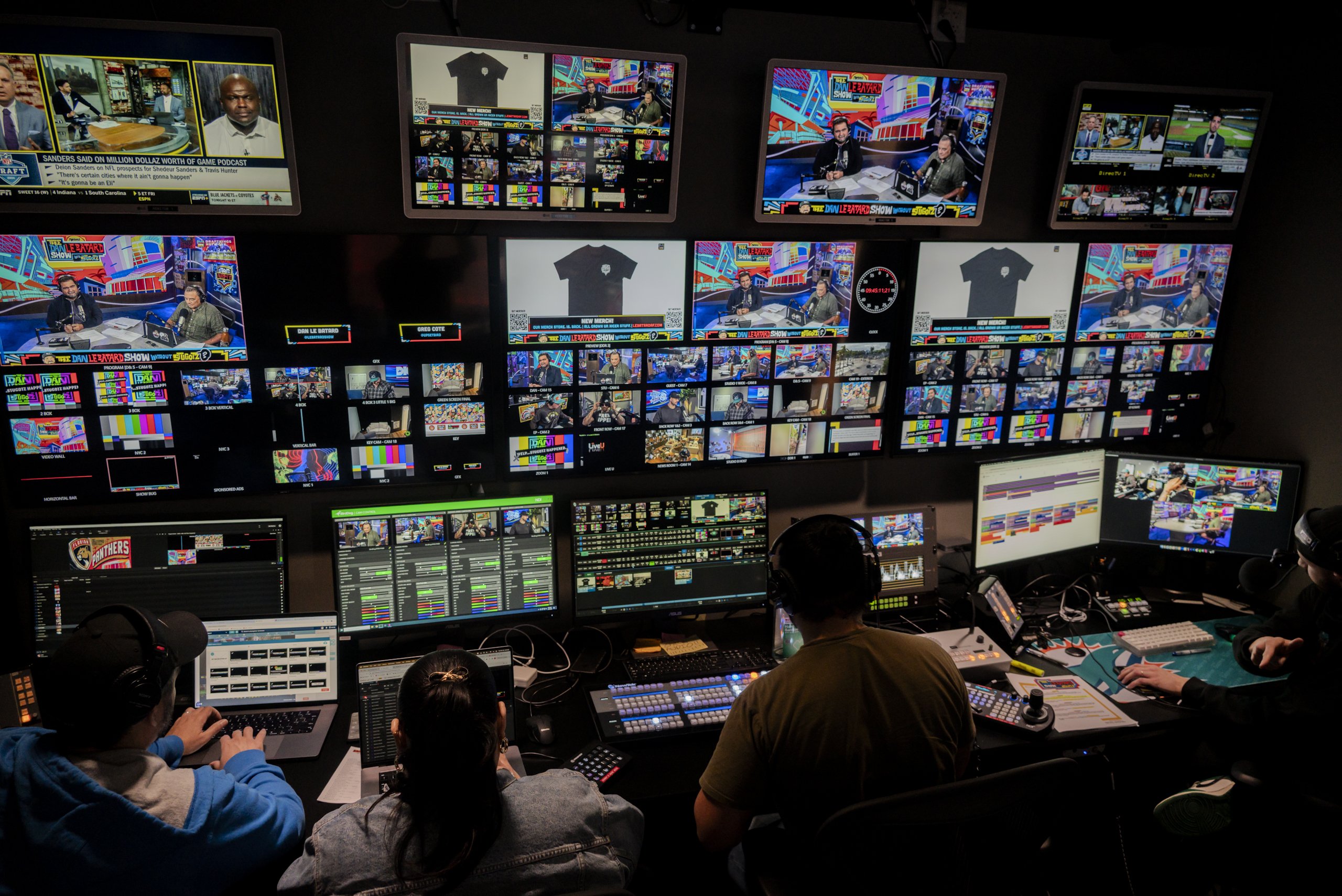

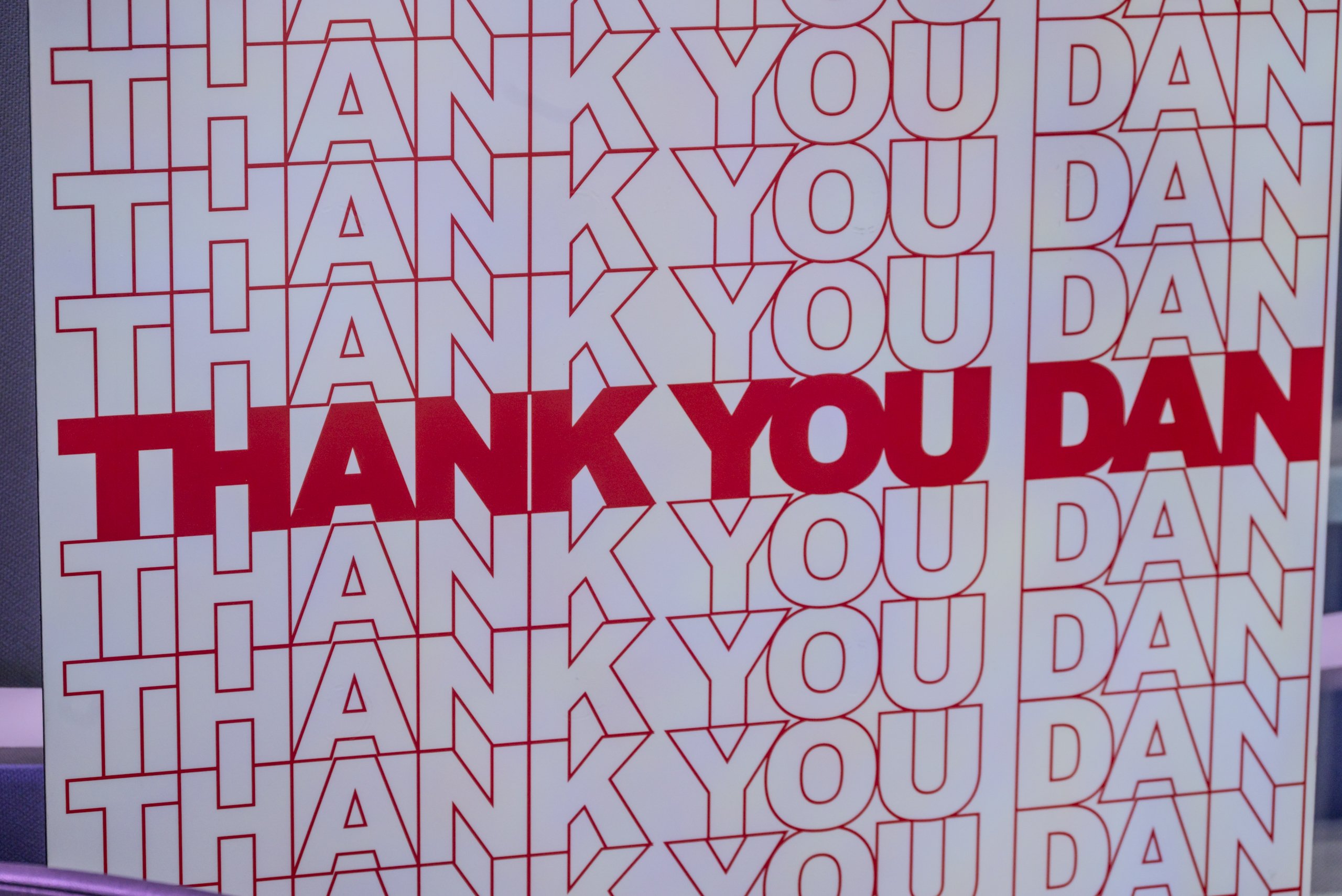

The Meadowlark Media facility in Miami has an additional production studio that is used to record various podcasts and other audiovisual content. There are days where the studios are packed with shows moving in and out, whereas other afternoons are relatively quiet in terms of new productions.
Meadowlark Media has offices in New York City as well, and signed deals with companies to continue moving into the content space. The Dan Le Batard Show with Stugotz, for example, is available to stream on Max with the B/R Sports Add-On. All The Smoke Productions also agreed to a strategic content partnership with the company for its flagship podcast hosted by former NBA players Matt Barnes and Stephen Jackson.
“We all dream-build over here at Meadowlark, and we’re hoping that it can go to really, really impressive places,” Ryan said. “I don’t mean to sound like we haven’t already accomplished some pretty impressive things so far. The company is growing in great ways, and adding All The Smoke, those are two really reputable talents that give us something in our locker that we didn’t really have before – players’ perspective and a real, true name that you can put up in the marquee there next to Dan’s show.”
Weiner believes that his time on the show is finite, asserting that he does not believe he or Le Batard will want to continue in their sixties. Projecting outward, they want to ensure they provide a professional working environment where employees can create and thrive in the job they want. There exists a possibility where they could one day take over the show, which will be moving to a new location in a few years. For now though, everyone involved is trying to enjoy the ride and help precipitate continued growth.
“I’ve always said the key to our show is Dan’s happiness,” Weiner conveyed. “He’s the straw that stirs the drink, and so in an odd way as frustrating as I can be and as frustrated as I make him, he’s a creature of habit, and having me next to him makes him more comfortable, and I think he would probably acknowledge that. Our staff knows how to produce me in a way that they don’t know how to produce anybody because they’ve been doing it for 20 years.”
“What a beautiful gift to have the ability to make something that is about you; your imaginations; your principles and have it reach and imprint someone else,” Le Batard said. “To be able to express yourself freely is something that my parents fled Cuba so that their kids would have the ability to be a writer in one case, and in the case of my late little brother, an artist. Freedom of expression and freedom in general is why I live in this country.”
Derek Futterman is an associate editor and sports media reporter for Barrett Media. Additionally, he has worked in a broad array of roles in multimedia production – including on live game broadcasts and audiovisual platforms – and in digital content development and management. He previously interned for Paramount within Showtime Networks, wrote for the Long Island Herald and served as lead sports producer at NY2C. To get in touch, email Derek@BarrettMedia.com or find him on X @derekfutterman.




